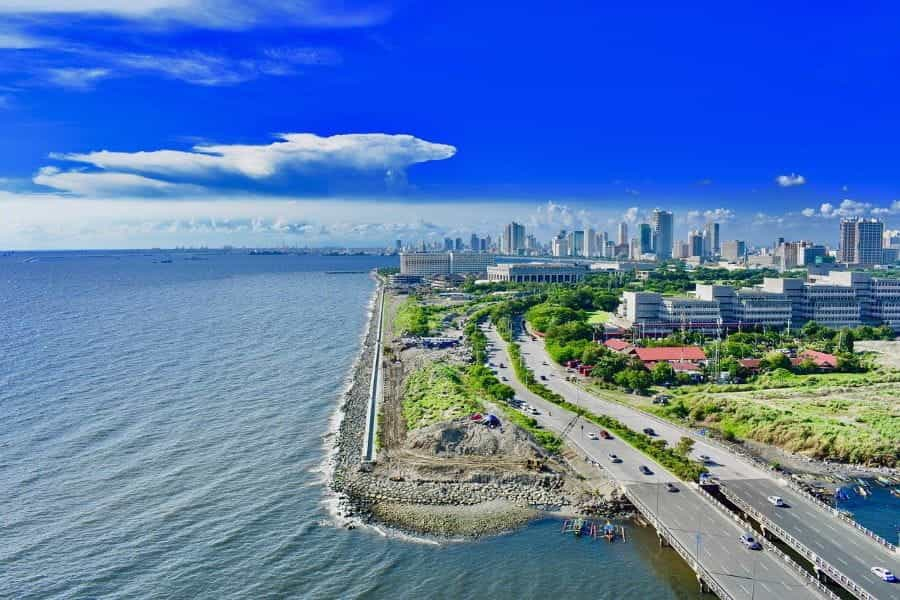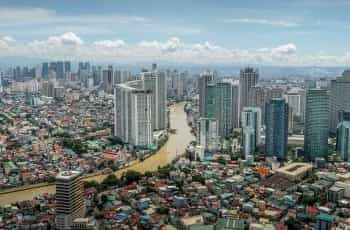Philippines Casinos Continue to Flout Laws and Target China
Let us set the scene. A drab abandoned shopping mall in the suburbs of Manila, inside on the third floor inside a disused conference hall there are hundreds of computer terminals assembled, webcam video equipment, and hundreds of scantily dressed Filipina croupiers live streaming themselves dealing cards to online casino games being played by Chinese customers.

Manila is experiencing a surge in violent crime, corruption and kidnappings on the backdrop of increased influence of POGOs. The offshore gambling operations marketed at China is causing a swathe of undesirable economic consequences. ©dylangonzales2011/Pixabay
The next room is full of Chinese nationals engaged in telephone conversations with potential customers back in China, tech-experts rummage around through a sea of wires and cables fixing hardware issues to maintain operational output, and managers walk briskly around the premises with laptops in hand monitoring performance metrics and identifying any potential bottlenecks that are slowing down the flow of revenue.
This is the typical Philippines Offshore Gambling Operation (POGO), often situated in rundown buildings with cheap rent, they are rapidly growing in number and scale. The past 18 months have seen an explosion in this growth, according to government data, there are over 100,000 Chinese nationals currently in Manila working in a POGO that caters to Chinese players where gambling is completely illegal in all forms.
Chinese-run POGOs in Manila have long been a controversial issue in the locality, on the one hand, they provide an enormous windfall of tax revenue, but often indirectly cause local crime statistics to rise and create new complex challenges for the Philippines National Police. Beijing has piled pressure on the Philippines to shut down the industry which is seeing a huge migration of capital from China to the Philippines, but thus far Duterte has resisted such calls.
In one of the most brazen and unprecedented moves so far in this controversy, the Philippines government allowed the POGOs to re-open in the first wave of the lifting of COVID lockdown restrictions – essentially labeling them an essential business and bringing immense backlash against Chinese-run POGOs.
Manila Casinos Boom
Under this new status-quo Manila casinos are thriving. The government has stepped aside and allows them to operate without restrictions. The online platforms marketed towards China allow players to remotely sign-up and play – choosing from a host of live-streamed games as if they were standing inside a legitimate casino.
Since their early 2000’s the Manila casino industry has been steadily growing, but in 2016 when Duterte took office it really began to explode. Now it is firmly at the top of the leaderboard when it comes to global online gaming hotspots, ahead of Malta, Isle of Man, and Curacao. Chinese businessman quickly seized this opportunity and capitalized on the Philippines newfound leniency in awarding operating licenses. This period of growth led to a 500% increase in POGOs and established this industry for the long-term.
The blatant disregard of local and international law is the major concern for most critics of this activity. Nearly 95% of POGOs customers are located on mainland China, this is illegal and Chinese citizens are banned from any form of gambling activity regardless of being online and overseas. Similarly, Philippines law bans online casinos from providing services to customers located in jurisdictions where gambling is illegal. The laws are clearly being poorly enforced, and the lack of action by state regulators has led to accusations of high-level corruption and the influence of organized crime groups.
As Wages Rise So Does Crime
The unavoidable trade-off between raise in the average wages and higher crime rates is a direct consequence of the integration of Chinese-run POGOs in the Philippines economy. These venues have created thousands of jobs for the local population, as they are very labor-intensive and require security, maintenance, cleaning amongst various other qualified and higher-skill level positions. Best estimates currently put the number at over 150,000 local Philippines citizens working inside a POGO.
Unavoidably, there have been some pretty significant economic implications of POGOs increased presence. These operations often rent out huge swathes of residential housing to place their workers, this is having an enormous knock-on effect to the local property market. Huge sections of Manila are now experiencing rental prices that are spiraling out of control as the cash-rich POGOs outbid working-class families for the housing-scarce neighborhoods.
The POGOs are leading to increased crime, according to Philippine officials reported by CNN. The fundamental cause of this is not difficult to grasp, Chinese employees of POGOs often gamble at the casinos and end up with insurmountable debts. Loan-sharks are willing to lend them money and when they default, conflict, violence, and kidnappings ensue.
Since 2017, the Philippines police have been dealing with the fallout of these violent situations between Chinese gangs and POGOs. Almost all perpetrators and victims of these crimes are Chinese nationals, and in the last two years, there have been hundreds of kidnapping cases, all of which take up massive amounts of resources and police time to solve. The systematic extortion of this system is just one of the many socially damaging effects of the POGOs.
The Philippines is having to come to terms with these incidents of violence and corruption on a more regular basis. The cost-benefit model so far has held up to criticism, but it has shown signs of faltering. Opening POGOs as an essential business during the pandemic was seen as many as a disgusting example of the unchecked power these businesses have. Resentment is growing, and considering most POGOs are barely paying a fraction of the tax they owe to their hosts, it is surely only a matter of time before they’re dealt with once and for all.



